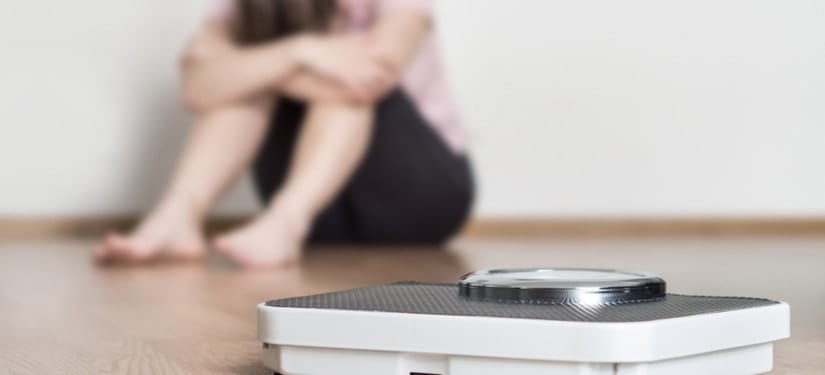The battle to raise awareness about mental health continues to be at its peak, with celebrities and athletes like Cara Delevigne and Michael Phelps taking the lead for discussions and public discourse to happen across the globe. Still, the stigma on patients suffering from it stays with people dismissing it as “all in the head” and not a real illness.
The fact that most of these patients who take antidepressants to treat their symptoms experience tremendous weight gain after a while of taking the drug didn’t help. Not only do they feel shunned by the society by being a “weird, psychotic being,” but also by being overweight.
Thankfully, the weight gain part of the side effect can be avoided. The secret is serotonin, a chemical substance in the brain responsible for mood and appetite. When someone takes an antidepressant, serotonin inside the brain gets more active, which gives the person an improved mood. However, this action increases his or her appetite, specifically with high-carbohydrate food items.
Your brain must produce serotonin from your food intake to avoid binge eating from happening. Only then can you reverse the effects of the uncontrollable cravings. Here are four helpful steps for you to do just that even while on medication:
Have a monitoring method.
Weight gain is such a common side effect that your psychiatrist must inform you of it. Upon taking his or her prescription, weigh yourself on a bathroom scale and take note of your pre-medication weight. Continue to take note of it on the same day every week, along with your physical activities, and amount of sleep. This data would help you in monitoring sudden weight changes and inform your medical provider of your legitimate concerns.
Plan your meals.
According to research, eating a few carbohydrates (with entirely no protein) on an empty stomach may help curb your desire to eat for the rest of the day. Thankfully, serotonin is not picky when it comes to the carbohydrates, so donuts or cake could be a possible choice.
However, if you want to stick to healthy eating, opt for complex carbohydrates found in whole grain foods, such as oatmeal and wheat bread.The same principle applies to your dinner time–to avoid unnecessary snacking before bed, have a sumptuous carbohydrate-filled supper.
This effect would not be sufficient if you eat protein with carbohydrates. This nutrient found in meat, eggs, and dairy inhibits the transfer of tryptophan, a vital ingredient in creating serotonin, to the brain. You are only allowed to eat protein foods during midday snacks or lunch, along with fat.
Fat also slows down digestion and the process of creating serotonin, so avoid pairing it with carbs during breakfast and dinner.
Learn your body cues.
One way to control your cravings is to know if you should eat because you need to or you want to. Hunger and appetite may look the same because it deals with you feeding yourself. But in reality, they are two different things.
Hunger is there to remind you that you NEED to eat. You can feel it because of the all-too-familiar loud stomach rumbling, lack of focus and concentration, and lethargy brought by low glucose levels. Your body is signaling you to feed yourself to continue fueling your daily work grind.
On the other hand, appetite is your desire to eat but not because you feel the need to do so. Often, appetite is awakened by environmental cues, such as a food advertisement, photo of food, or even the sight of your workmate eating across the table from you.
Now that the difference is established, you can recognize which of the two are you feeling before snacking and plan ways on how to avoid giving in to the latter. One tip recommended by a known psychiatrist to have a distinct feeling between the two is to have a specific food item that you do not really like to eat in normal circumstances. For me, that would be popcorn. I don’t prefer eating one, but if given no choice during hungry moments, I won’t say No.
Engage in physical activity.
Nobody–not even ill people–is exempted from the weight loss formula. Regardless of your medications, patients still need to incorporate physical activities into their daily routine to lose weight.
And it’s not just to shed those pounds. Studies show that exercise is as effective in treating depression as any other pharmacological drug. Plus, you don’t have to spend hours to reap the benefits. A recent study concludes that even just an hour of exercise can help depression patients.
Depression should not be the illness that dictates your life. It can be treated, cured, and defeated, not only by your efforts but also with the people who supports and cares for you. You can gain control of yourself, your thoughts, and now, even your body. Go for it.

